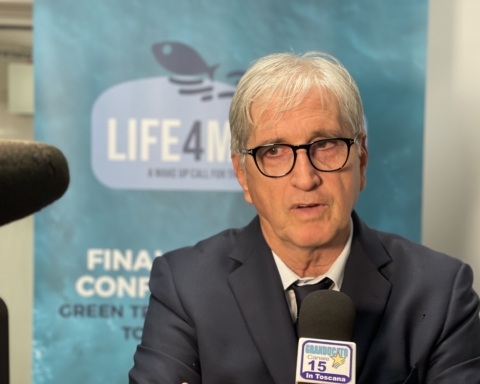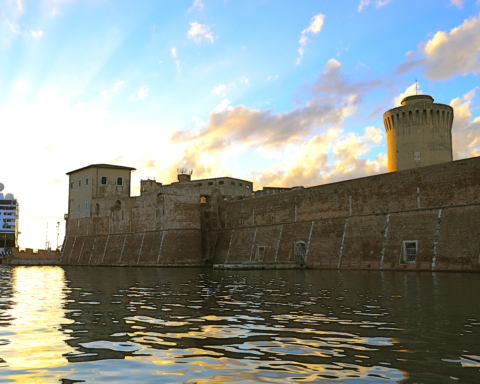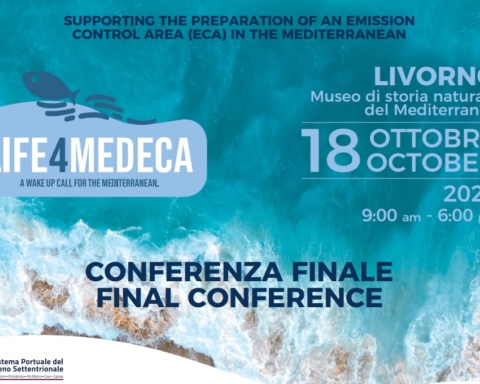Although there are typical social circumstances in history that can be said to reoccur regularly, even this regularity, these constants, do not have the characteristic immobility of the laws of Newtonian physics but are themselves subject to variation. The modern, post-global era is characterized by a structural variability that leads to total unpredictability.
Zeno D’Agostino, an ante-litteram historian in the psychotic obscurantism of a period characterized by fear of contagion, is certain about this: “Europe and the world are facing unprecedented challenges. Unpredictable situations like Covid-19 will be increasingly on the agenda. We must be aware of this. We are facing a period of instability where the role of the public administration will be increasingly important, especially in Italy.”
Our country was one of the first to have responded to the emergency: “On 18th February I was in Brussels, at a meeting of the European Sea Ports Organisation (ESPO), and when I started talking about the Covid-19 and the countermeasures that the port of Trieste was preparing to deal with the emergency, everyone looked at me dumbfounded, as if I was talking about a hircocervus.”
A hircocervus that up to only a few weeks ago was considered by European ports at most as a horrifying suggestion, as something to be inserted in a possible post-apocalyptic bestiary, has now become all too real. In addition to endangering the health of thousands of citizens, the Coronavirus has highlighted, especially in our country, the weakness of a logistical system whose development model is often based on the exclusive logic of profit. “On the one hand, there are the ports, which have proven to be able to govern the effects of this emergency, keeping themselves fully operational. On the other, there is a whole world i.e. the supply chain and dry ports, which appears to be under strain with the Covid-19 continuing to be a challenge so full of uncertainties as to prompt an almost heart-wrenching call to responsibility by the President of Confetra.” The opinion of Espo’s vice president reflects all his concern: “I’m sorry to say that there’s a qualitative gap between working in the Italian logistics industry and working in the port. Our port workers enjoy much better economic and training conditions than those who work in the ‘land-based’ supply chain.”
It is a gap that “in critical situations such as this stands out in all its drama: the porters do not go to work because they are afraid, our dockers, although worried, still go to work.”
The truth is that the logistics sector is bound by the rules of the free market and is therefore overexposed, more than other sectors, to its fluctuations. In ports, on the other hand, there are elements of public governance that correct its distortions. This is why “It’s time to invest in the public sector, in all areas, supporting its governance capacity.”
It is exactly the opposite of what the European Union is doing with its “masochistic” attitude as the President of the Trieste Port Network Authority puts it: “In an era like ours, we need strong state companies and public bodies i.e. prepared to face situations like the one we are going through. Brussels is moving in the opposite direction, working with the intention of demolishing our national champions. The EU’s attitude towards Fincantieri and the acquisition of STX clearly demonstrates this.”
On the other hand, outside Europe there are foreign state enterprises with entrepreneurial skills and infinite financial resources: “While the EU is waving their finger at the Port Network Authorities, calling on them to verify if their ‘economic’ activities should be subject to VAT, a number of public companies – set up by countries outside the EC – are moving with confidence inside the communitarian borders, buying terminals, ports and strategic infrastructures. These state companies have the same freedom of action that a private one would have. This is a paradox.”
D’Agostino criticizes the hyper-liberalist European reasoning, which appears anachronistic these days: “We are no longer in the Bretton Woods era. Brussels must understand this. Public economic actors must not be condemned every time they try – virtuously – to intervene in the free market to correct its distortions. Adam Smith’s invisible hand only exists if there is healthy competition, and to ensure healthy competition we need a competent and prepared public administration. On the other hand, this was precisely the thesis that the Scottish philosopher and economist supported in his Inquiry into the Nature and Causes of the Wealth of Nations.”
‘Brussels petty lawyers’are warned: “The era we are living in, characterized by a high degree of unpredictability, needs public leaders and enlightened bureaucrats who understand this.”
Translation by Giles Foster




